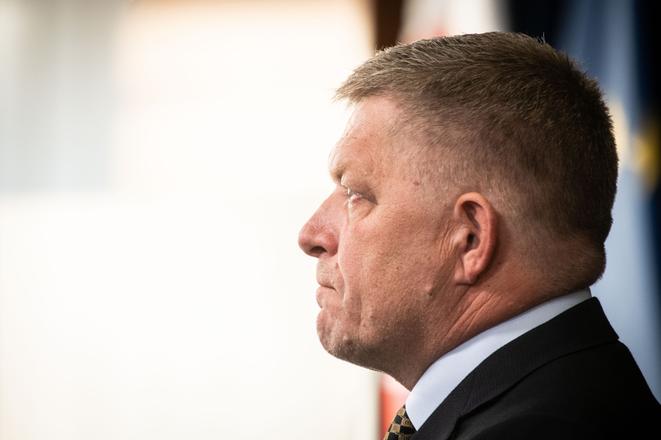Welcome to your weekly commentary and overview of news from Slovakia. The country marked six years since the murder of journalist Ján Kuciak and his fiancée Martina Kušnírová. Two years after the full-scale war in Ukraine started, the government has halted military aid to Ukraine – but many Slovaks are still willing to help. The EU is about to lift sanctions against the Slovak leader of a Kremlin-aligned motorcycle gang.
If you have a suggestion on how to make this overview better, let me know at michaela.terenzani@spectator.sk.
Two anniversaries show two faces of Slovakia
“Everyone should live through one day of war to realise that it is much closer than it seems, to see what it’s like to fight against a nuclear superpower. It is a gift that we don’t have Russia as our neighbour,” says Eliška Horsáková.
“If Ukraine fell, we would have Russians just across our border. And I do not want Russians across the border,” says Marcel Rebro.
Horsáková and Rebro are among the many Slovaks that are not giving up on Ukraine even two years into Russia’s barbaric aggression against Slovakia’s neighbour. My colleagues at the Sme daily interviewed them for a special issue marking the second year since Ukraine, against its will, entered into an all-out war with Russia.
Fico keeps calling for ‘peace’
But even people who are not giving up on Ukraine admit that the mood of the people they meet both in Slovakia and in Ukraine is deteriorating. Even though there are still many who are willing to contribute financially or otherwise to the war effort, public opinion in Slovakia, heavily affected by the rhetoric of members of the current governing coalition, has been tilting away from support for Ukraine for some time.
Last week, Robert Fico found himself in a peculiar situation in the middle of an interview he gave to the virulently pro-Russian disinformation website Hlavné Správy. When the propagandist conducting the interview asked Fico the mind-blowing question of whether Slovakia would claim part of Ukraine’s territory in the event that it lost the war, even the prime minister, who rarely has a good thing to say about Ukraine, was forced to defend its territorial integrity and sovereignty. “Russia needs security guarantees, and Ukraine needs security guarantees. Ukraine must feel safe,” he told the interviewer.
That of course does not signal a change of heart.



 Robert Fico (source: Sme - Jozef Jakubčo)
Robert Fico (source: Sme - Jozef Jakubčo)